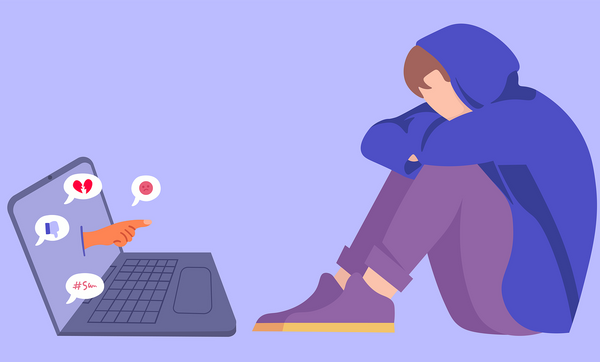Make the Internet a Better, Safer Place on Stop Cyberbullying Day

Stop Cyberbullying Day has been promoting good digital citizenship practices for more than a decade to make the digital world a better and more welcoming place for everyone.
This year, we’re reminded of the challenges and risks children and teens face when using digital technologies. Stuck at home during the pandemic, kids have turned to social media, gaming platforms, and instant messaging apps where safe digital encounters are not a given.
According to The Cybersmile Foundation, 60% of internet users have been exposed to bullying, abuse or some form of harassment online.
“Stop Cyberbullying Day is a reminder that although the Internet is one of the most powerful and effective tools on earth for making the world a better place – unfortunately, it also highlights the reality that there are still lives being destroyed on a daily basis when this power is abused or used for the wrong reasons,” said Iain Alexander, Head of Engagement at The Cybersmile Foundation.
Cyberbullying can take place over a cell phone, computer or tablet — devices found in most any home. It involves sending, posting or sharing damaging or false information about individuals online, including personal and private information that may cause negative long-term psychological effects for victims.
While cyberbullying may take place on any digital platform, social media platforms such as Facebook, Instagram, Snapchat and TikTok are prone to negative behavior and mean comments due to the visibility of messages and posts to others outside a trusted circle of friends and family.
Online harassment and bullying can also extend via text messaging and online chat rooms, email and gaming communities, allowing for persistent and continuous embarrassment for victims.
Parents and caretakers may not always be aware that cyberbullying is taking place, as victims may feel ashamed and unwilling to communicate with others. However, unlike face-to-face bullying, cyberbullying leaves a trace on the Internet, so it can be easier for parents and victims to gather evidence and put a stop to the harassment.
The Bitdefender Parental Control feature enables parents to check if their children engage in conversations with unknown individuals and monitor access to damaging websites.
Based on a child’s age, the Parental Advisor will automatically choose the best privacy features that can be fine-tuned for the parent’s and child’s needs by managing screen time and blocking incoming calls that have no Caller ID, among others.
tags
Author
Alina is a history buff passionate about cybersecurity and anything sci-fi, advocating Bitdefender technologies and solutions. She spends most of her time between her two feline friends and traveling.
View all postsRight now Top posts
How to Protect Your WhatsApp from Hackers and Scammers – 8 Key Settings and Best Practices
April 03, 2025
Outpacing Cyberthreats: Bitdefender Together with Scuderia Ferrari HP in 2025
March 12, 2025
Streamjacking Scams On YouTube Leverage CS2 Pro Player Championships to Defraud Gamers
February 20, 2025
How to Identify and Protect Yourself from Gaming Laptop Scams
February 11, 2025
FOLLOW US ON SOCIAL MEDIA
You might also like
Bookmarks




